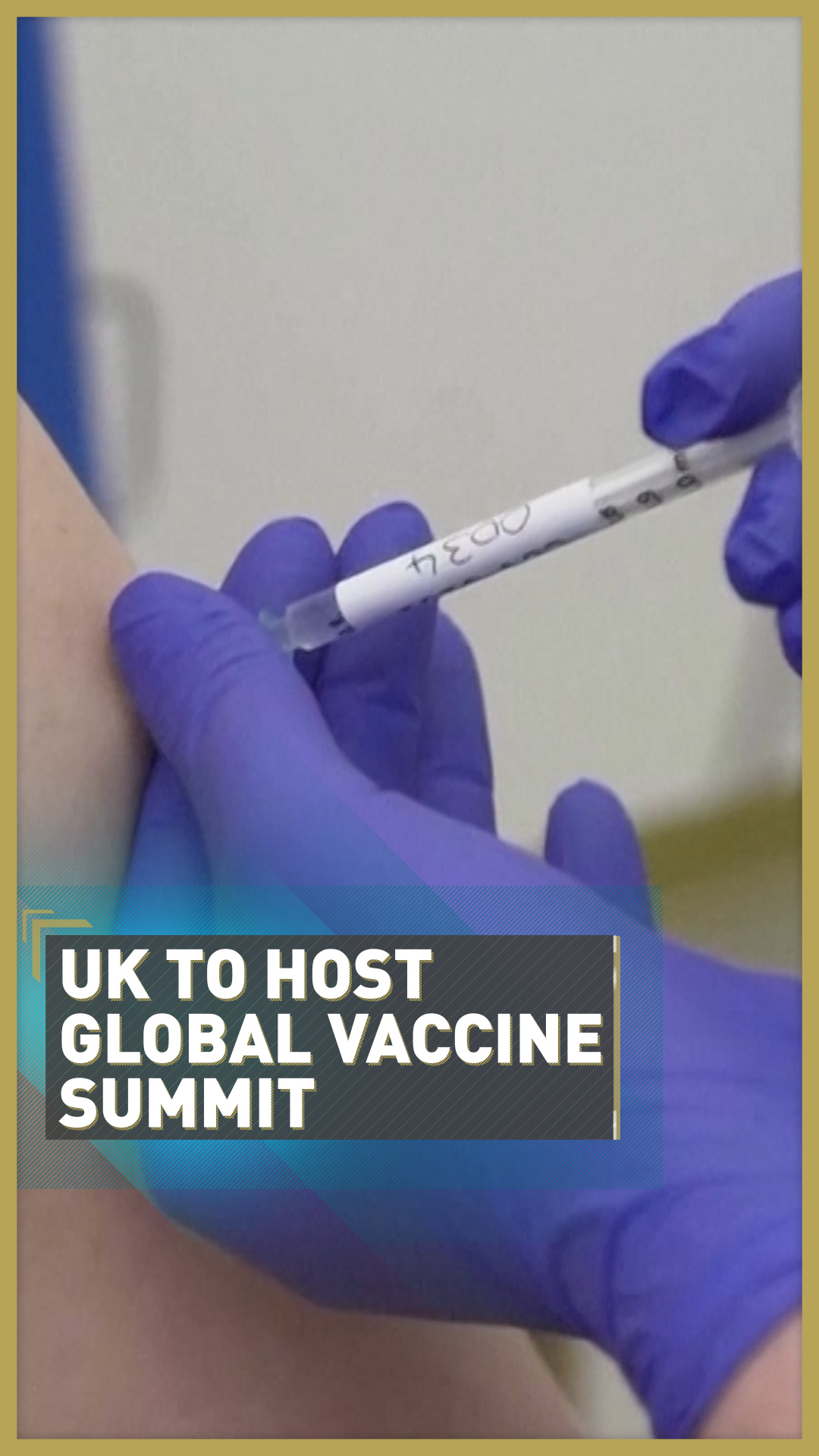02:50

The UK is hosting Gavi's third Global Vaccine Summit on Thursday, with organizers hoping to raise at least $7.4 billion to help fund international vaccination efforts over the next four years.
The event is used to setting big targets and receiving pledges from public and private-sector donors, but this year's virtual meeting will have a very different feel to it. COVID-19 has forced governments to look inwards, as it continues to cause death and economic destruction worldwide.
Gavi – the Vaccine Alliance – says the initiative is a chance for interested parties to coordinate the fight against the disease. "Gavi is asking its supporters to provide at least $7.4 billion for the 2021-2025 period," said the alliance's CEO Seth Berkley.
"This is an opportunity for all of our stakeholders, our implementing countries, vaccine manufacturers, and donors to come together to provide support for the alliance."
Gavi's focus has traditionally been on providing vaccinations to children in the world's poorest countries. That means tackling diseases such as tuberculosis, measles and polio. Since its founding in 2000, Gavi claims to have helped vaccinate more than 760 million children, preventing more than 13 million deaths.
Bertie Squire, a professor at the Liverpool School of Tropical Medicine (LSTM), has worked with Gavi in the run-up to the event. He thinks it's crucial that other diseases are also given attention.
"[A] big thing is going to be the extent to which the COVID-19 lockdown in different countries is affecting existing vaccine programs," said Squire, "and trying to think about how there might be vaccine catch-up mechanisms to ensure that existing programs aren't completely derailed and end up with causing mini-outbreaks of existing vaccine-preventable diseases."

A health worker gives a polio vaccine to a child in Lahore, Pakistan. /KM Chaudary/AP Photo
A health worker gives a polio vaccine to a child in Lahore, Pakistan. /KM Chaudary/AP Photo
The summit is taking place amid numerous challenges for multilateral efforts to combat COVID-19. The recent decision by U.S. President Donald Trump to pull his country out of the World Health Organization could have an impact on global vaccine efforts, given the WHO's role as a "core partner" of Gavi.
We can't really globally afford a situation in which a COVID-19 vaccine ends up being accessible only to the wealthier parts of the world
- Bertie Squire, Dean of Clinical Sciences & International Public Health, Liverpool School of Tropical Medicine
Thursday's summit is also a key event for the UK government. Prime Minister Boris Johnson has referenced the summit multiple times in recent weeks, both to the UK public and in calls with other global leaders. With an official COVID-19 death-toll that's the second highest in the world, and mounting pressure on Johnson's government over its handling of the pandemic at home, the summit offers the UK a chance to show international leadership on the issue.
Johnson and his closest aides will be hoping it eases some of the criticism they've been facing lately. The government declined an interview request but said it was pledging more than $400 million a year to Gavi over the next five years.
There is no doubt this year's summit will garner more attention because of the COVID-19 pandemic. The hope is that billions will be pledged to global vaccination efforts for a range of diseases.
And for Squire, it's important that the multilateral approach to tackling international health issues is maintained in the future. "For now, there is global attention on COVID-19 because it's affecting everybody, including the more wealthy sectors of society and countries in the world," he said. "But as time goes on, we're seeing that it disproportionately impacts the poor – and it's easy for the world's attention to slip."
Check out The Pandemic Playbook, CGTN Europe's major investigation into the lessons learned from COVID-19